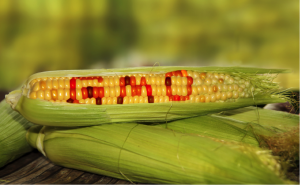 Students pursuing food safety careers know that genetically modified organisms (GMO) are organisms whose genetic materials have been altered by scientists. While there are various reasons for producing genetically modified foods, the most common one is to improve crop protection, since crops can sometimes become infected by insects, viruses, or as a result of a resistance to herbicides. Because most foods can be genetically altered, it’s important that GM foods are thoroughly assessed by food quality experts before being placed on the market.
Students pursuing food safety careers know that genetically modified organisms (GMO) are organisms whose genetic materials have been altered by scientists. While there are various reasons for producing genetically modified foods, the most common one is to improve crop protection, since crops can sometimes become infected by insects, viruses, or as a result of a resistance to herbicides. Because most foods can be genetically altered, it’s important that GM foods are thoroughly assessed by food quality experts before being placed on the market.
Individuals pursuing food safety careers will learn all about which foods and crops are most commonly genetically altered. Here are the top three:
Food Safety Specialists Urge People to Steer Clear of Aspartame
To consumers, aspartame is a very sweet coffee companion known as Splenda, Sweet ‘N Low or Twins. However, to professionals holding a food safety diploma, it is an artificial substance that is made from two natural amino acids. One of the bacteria that produces the amino acids that make up aspartame is usually modified to increase the production amount. Since aspartame is associated with a wide range of negative reactions to the body, food safety professionals normally recommend steering clear of this substance. Some symptoms affiliated with aspartame consumption include: headaches, dizziness, and nausea.
What Food Quality Professionals Know About Potatoes
Most people are unaware of the fact that the majority of potatoes grown in Europe are actually used to feed cattle or produce alcohol and other starch products. Individuals who have had food quality training understand that more and more potatoes are genetically modified for the sole purpose of being sold as starch potatoes for dry cleaning purposes. In fact, approximately 10 per cent of the potatoes that people normally purchase to eat are genetically modified. However, it’s important to note that genetically modified potatoes have received FDA approval, and are considered safe for human consumption.
Corn is One of the Most Highly Modified Foods
Students enrolled in food safety courses recognize corn as one of the most common genetically modified foods in the world. In fact, the US Department of Agriculture found that approximately 25 per cent of the corn crops that were growing on US soil back in 2000 were genetically modified.
Industry professionals know that corn crops are wind-pollinated. This means that pollen is distributed through the wind, so it is easy for nearby fields to become contaminated. While genetically modified corn is not intended to be eaten, anemophily (or wind pollination) makes it very difficult to know for sure if the corn that most people consume daily has been affected or not. Some products that commonly contain genetically modified corn include beer, salad dressing and corn syrup.
Are you interested in learning more about other genetically modified organisms? Check out our food technology, safety and quality diploma program for more information.



